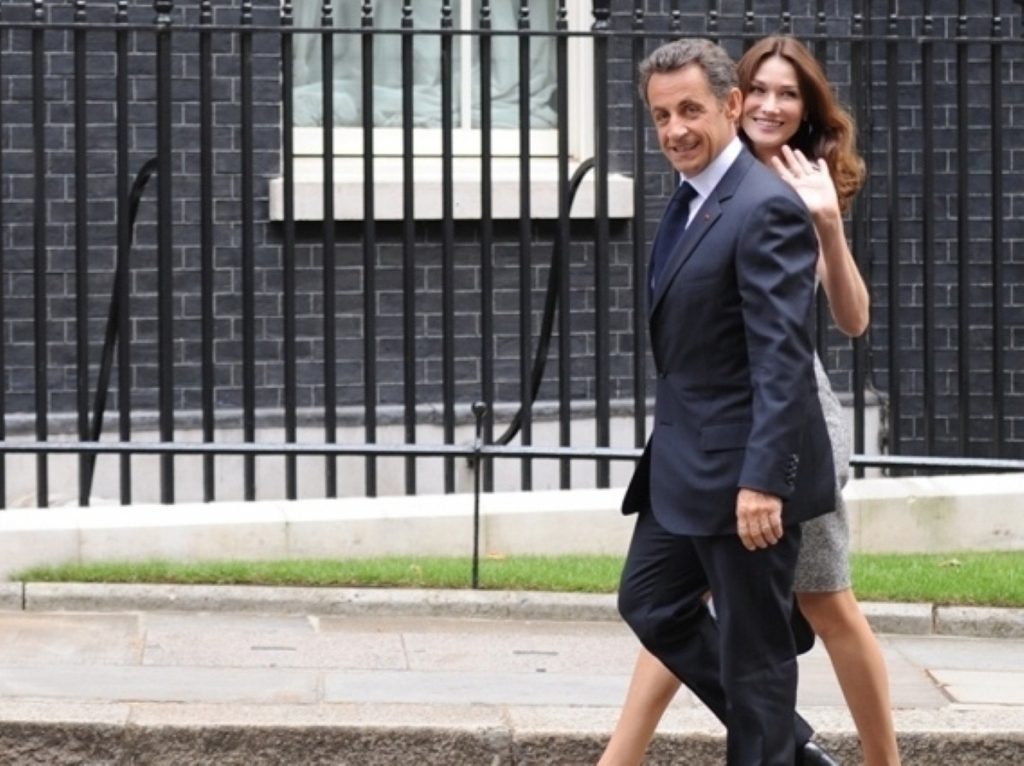‘Hard-headed’ UK joins forces with France
Britain and France have signed treaties agreeing to pool their military capabilities, as they bid to cling on to their major global defence player status despite constrained budgets.
Two treaties have been signed today securing wide cooperation on defence and security cooperation, although ratification must wait until they are approved by both parliaments.
A separate treaty signed today will see Britain share more of its nuclear secrets as the two countries pool resources to aid atomic testing – without breaking their test ban commitments.


Senior government officials said the deal was the result of “personal commitment” by the prime minister and French president.
Under today’s agreements the UK and French militaries will be able to operate more effectively together, maximise their equipment capabilities and improve value-for-money.
Britain and France will establish a combined joint expeditionary force capable of being deployed to anywhere in the world from 2020 onwards. Training will start as early as next year, when joint military exercises will be carried out.
Both countries will remain sovereign over their military forces, allowing both London and Paris to veto cooperation if either is uncomfortable with the military deployment.
Whitehall officials pointed to common interests in Bosnia, Kosovo and Afghanistan – but observers pointed out the biggest foreign policy intervention since the Cold War, the 2003 invasion of Iraq, would have been unlikely to meet with joint support.
“Britain and France are and will always remain sovereign nations, able to deploy our armed forces independently and in our national interest when we choose to do so,” Mr Cameron said in a joint press conference with Mr Sarkozy.
“But we should also remember the only time British forces have been deployed alone in the last 30 years was in Sierra Leone and in the Falklands.”
The UK will rely on France’s only aircraft carrier while its carrier, operational in ten years’ time, is in port for maintenance or refitting.
“Neither country will ever be obliged to deploy its armed forces if it doesn’t want to,” a senior Whitehall figure said.
“This only works in the circumstances where both countries have shared interests… and where only one is available. It would be better than not having an alternative at all.”
Decisions over which country would command the operation would be made at the time as part of the political decision to deploy, he added.
Shadow defence secretary Jim Murphy offered general support from Labour for the treatise, saying: “Most of us will welcome in principle steps for improving what is already a strong relationship.”
He received confirmation that Britain’s forces would not be coerced into assisting France against the wishes of the London government.
Defence secretary Liam Fox told MPs: “What we’re trying to do is provide better cooperation when we wish to act together in our mutual interests.”
The nuclear treaty will see the establishment of two shared research facilities, one on French and one on British soil, which will enable components of the two countries’ nuclear warheads to be tested under extremes of temperature and pressure.
This was not previously possible without exploding a warhead, a Ministry of Defence figure said. While some data will be shared, officials insisted experiments will not compromise safety or security.
Mr Sarkozy is being accompanied by his home affairs, defence and foreign ministers. Talks are taking place on a range of non-defence issues, including the G20, international issues and immigration.
Heightened defence cooperation will encompass more long-term work on complex weapons development, research and technology, cybersecurity and counter-terrorism.
“Together we will do better,” Mr Sarkozy told reporters in central London, adding that the decision to pool capabilities was a “historic event which will allow us to make savings”.
“Who would stand to gain if we were divided? We have common commitments and we will shoulder them together,” he continued.
“France and Britain’s clocks strike the same hour at the same time.”
Earlier Downing Street said the steps were part of a pragmatic approach to defence issues in both Paris and London.
“Ours is now a strategic partnership tackling together the biggest challenges facing our two countries,” a No 10 spokesperson said.
“How we take forward on cooperation on defence, based on a hard-headed and practical assessment of our national interests, is high on the agenda.”
The announcement comes soon after the discovery of an explosive package on board a cargo plane bound for Chicago from Yemen, which stopped at East Midlands airport. The Home Office has launched a review of air freight security as a result.
“The terrorists they think our global society and our interconnectedness is a source of weakness. They are wrong,” Mr Cameron added. “Nicolas and I are absolutely determined to show they are a source of our strength, our solidarity and our power in defeating terrorism.”

